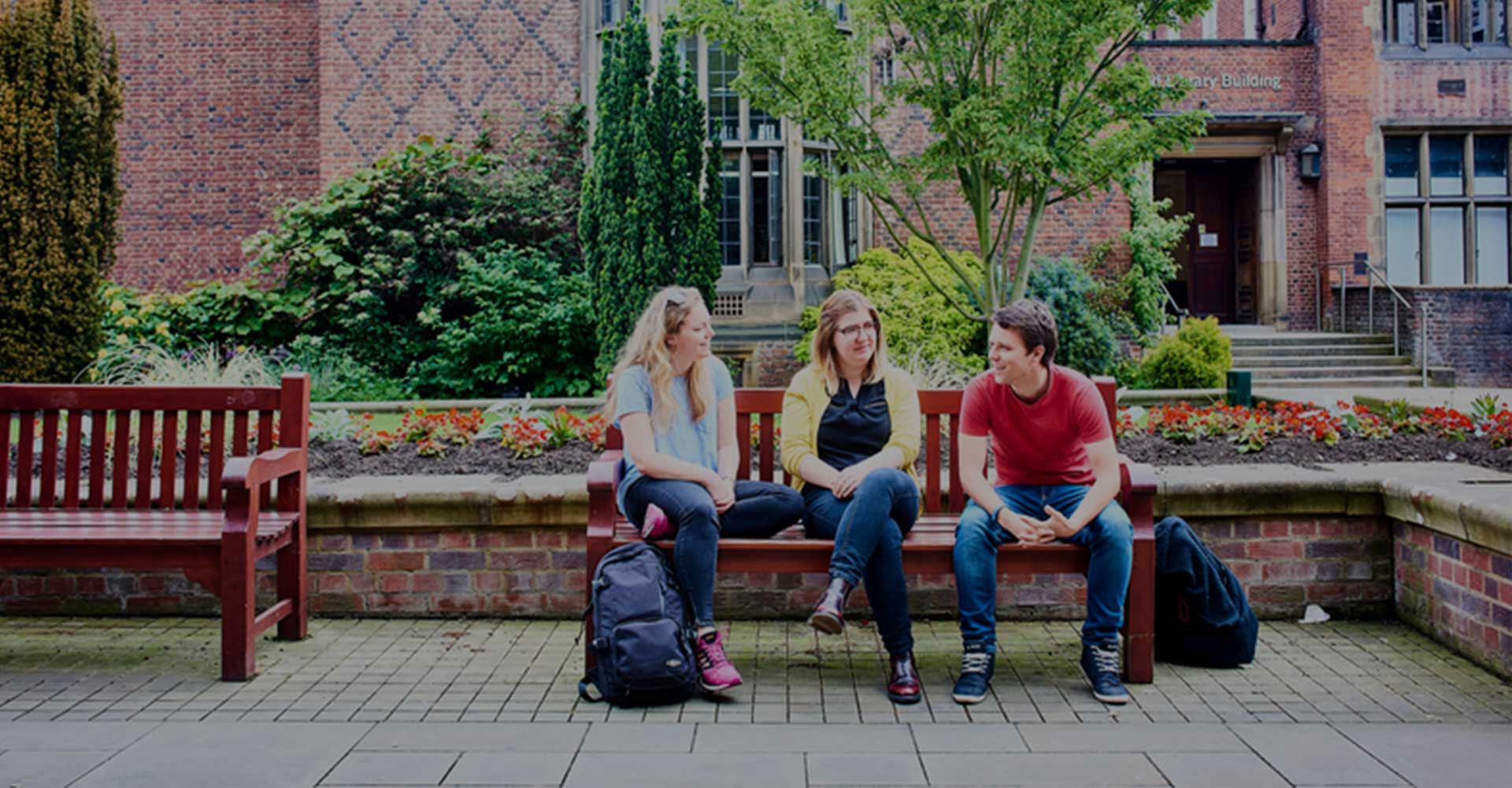How do I look after my mental health at university?
28 August 2024 | By: Abby Danecki | 2 min read
Starting university is an exciting time, but it's also a time of change, and that can be unsettling.
As you turn the page to a new chapter of self-reliance and self-discovery, you could be feeling a little worried about some of the challenges you might face at uni.
To help you look after your wellbeing and mental health at university, we offer a network of support ranging from our central Student Wellbeing Service, to our Student Wellbeing Advisers.
In this blog, we're taking a look at how our School-based advisers could help get you back on track.
Contents:
-
Is how I'm feeling about going to university normal?
-
Our Student Wellbeing Advisers
-
What can Student Wellbeing Advisers help with?
-
How to ask for help
-
Our five top tips
-
Accessing more support
Is how I'm feeling about going to university normal?
Yes. However you're feeling about university, whether it's positive or negative, your feelings are valid. Experiencing mixed emotions at such a huge juncture in your life is completely normal.
You’ve sat your exams, you've said goodbye to your school or college, and you're preparing to leave home - perhaps for the first time - and move into university accommodation. These are all big life changes, and it's important to acknowledge that.
While you might be looking forward to your new adventure and the freedom it will bring, the reality of being away from home and starting university life can leave some students feeling a bit at sea.
"We all remember how those first few weeks felt when starting university. It’s a huge adjustment that can feel really isolating at times, but everyone’s in the same boat. What helped me was realising that change and growth aren’t supposed to be comfortable - they’re supposed to challenge you. My anxieties were just a natural response to stepping out of my comfort zone." Amy, BA English Literature and Language graduate.
Our Student Wellbeing Advisers
Our Student Wellbeing Advisers offer an extra layer of support as part of our Student Wellbeing Service. You can talk to them about any concerns you might have and because they're based in our academic Schools, they'll understand your academic experience. They can also signpost you to other support services.
You can chat to your adviser in person or online; you can even send them an email - whatever suits you best.
What can Student Wellbeing Advisers help with?
Our advisers offer one-to-one appointments, providing support and guidance to help you proactively manage and maintain your wellbeing.
Their aim is to provide all our students with timely, tailored and appropriate support. They can help with issues such as settling into university life, managing exam stress and anxiety, as well as academic worries.
Support you can access includes:
- an initial point of contact for your wellbeing-related issues
- helping you understand what advice, guidance and support you can access
- supporting you in the best next steps to getting appropriate support
- working with you to create an action plan
- referring you directly to an appropriate service
How to ask for help
Each adviser has set up a community on Canvas, our virtual learning tool, which every student can access. Here you can:
- search and access appropriate support
- find specific advice on disability support, feeling isolated, report and support, and exam stress
- book a drop-in session using the confidential Canvas appointment system.
This community is regularly updated throughout the year and provides information, resources and links.
Click the link below to hear Ruth explain her role as a Student Wellbeing Adviser for the School of Natural and Environmental Sciences.
Our five top tips
Accessing more support
You're never on your own during your Newcastle University journey - there's support available from your first day on campus. It's free, tailored to the different levels of help and guidance you might need while you're studying with us, and easy to access when you need it most, including a range of services offering 24/7 support.
Because we understand the demands of postgraduate study, we also offer dedicated support for our postgraduate taught and research students,
Find out more about our central Student Wellbeing Service and the in-person and online support we offer in our blog about how we support our students' mental health.
Explore the help you could access through our Students' Union Support and Advice Hub, and find out more about the health and wellbeing events we run throughout the year, that will support you to achieve and maintain good mental health.

We've been voted top in the UK for student life in the WhatUni Student Choice Awards 2025 - trusted recognition from real students.